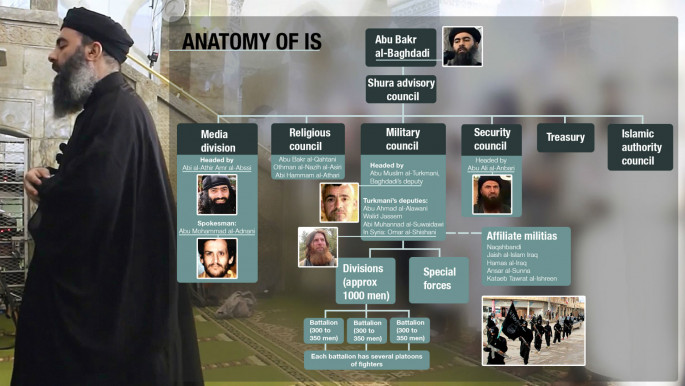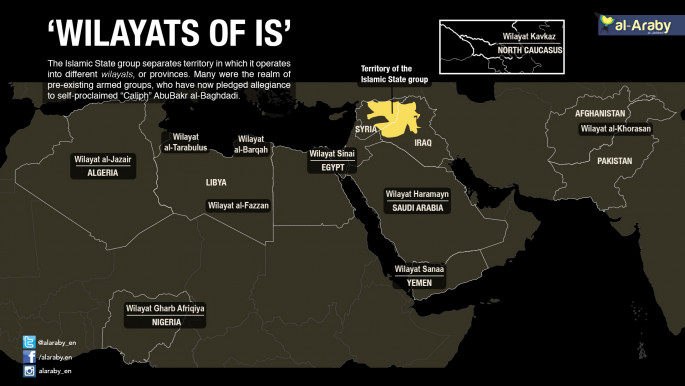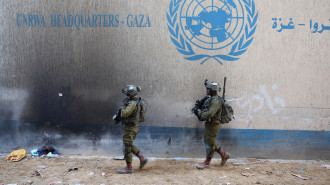ISIS, ISIL or Daesh?
The Islamic State's rampage across the Middle East has left the world divided over how to refer to the extremist group, with observers adopting different acronyms based on their translation of an archaic geographical term and the extent to which they want to needle the extremists.
Some media outlets refer to it as the Islamic State group — to distinguish it from an internationally recognised state — or IS for short, usually as an adjective before the words group, organisation or extremists.
Here's a brief explanation of the militant group's various names:
ISIS or ISIL?
The group traces its roots back to al-Qaida in Iraq, which declared an Islamic State of Iraq in 2006.
The name never really caught on, however, because the militants were never able to seize and hold significant territory.
That began to change when the group expanded into neighbouring Syria, exploiting the chaos of its civil war.
In 2013 the leader of the Islamic State of Iraq, Abu Bakr al-Baghdadi, renamed it the Islamic State of Iraq and al-Sham, signalling its emergence as a transnational force while sowing the first seeds of confusion over what to call it.
 |
|
| [Click to enlarge] |
Al-Sham is an archaic word for a vaguely defined territory that includes what is now Syria, Lebanon, Israel, the Palestinian territories and Jordan.
It is most often translated as either Syria or as the Levant, the closest English term for the territory it describes.
In English, the group's name was translated variously as the Islamic State of Iraq and al-Sham (ISIS), the Islamic State of Iraq and Syria (also ISIS), or the Islamic State of Iraq and the Levant (ISIL), the term usually used by the US government and various UN agencies.
Mainly in the Middle East but increasingly beyond, those opposed to the group turned the Arabic acronym corresponding to ISIS into a single word — Daesh.
Daesh
| I ask you not to use the term Islamic State, as this causes confusion between Islam, Islamists and Muslims - French foreign minister |
The word is nonsensical and doesn't mean anything in Arabic but has a mocking tone and is insulting to IS because it diminishes its claim to have revived the Islamic caliphate.
It is also sounds similar to the words "dahesh" and "da'es," meaning "one who tramples," making it fodder for puns.
The IS group's opponents, including public officials like French President Francois Hollande and US Secretary of State John Kerry, have used to condemn or diminish the group.
"The terrorist group in question is not a state, it would be, but it is not," Laurent Fabius said on Wednesday at the National Assembly perch.
"I ask you not to use the term Islamic State, as this causes confusion between Islam, Islamists and Muslims. This is what the Arabs call Daesh and I will call for my part of the cut-throats Daesh."
Dawaesh, a plural form of the word that sounds even sillier in Arabic, is widely used in the Middle East.
IS itself bans the use of the term Daesh in areas it controls.
But Arabic speakers have found other ways to put down the group.
"If an organisation wants to call itself ‘the light’, but in fact they are ‘the darkness’, would you comply and call them ‘the light’?" said Syrian activist al-Haj Salih who coined the term.
Translator Alice Guthrie, who spoke to Salih, wrote that Western explanations of the term “Daesh” were confused and verges into orientalism.
She gives the example of commentators inaccurately saying that a “different conjugation” of Daesh could mean "to crush or trample underfoot".
"The coverage seems to imply, it’s obscured by a veil, like so much else in the Arab-Islamic world, and we can’t hope to get it spelled out for us. It’s far too Eastern and weird for that," she wrote.
During last week’s British Parliamentary debate on Syria, audiences witnessed multiple different pronunciations of the acronym, including "die-esh" and "dash".
After the IS group's bitter falling out with al-Qaeda in 2013, al-Qaeda supporters began referring to it as "al-Baghdadi's group," emphasising their view of him as a renegade.
Syrians living under IS rule often refer to it as "al-tanzeem," Arabic for "the organisation."
When the IS group seized vast parts of northern and western Iraq in the summer of 2014, it declared a caliphate in the territories under its control and dropped Iraq and al-Sham from its name.
Today the group refers to itself as the Islamic State or simply The Caliphate.
It refers to its affiliates in Libya, Egypt and elsewhere as provinces. For example, the branch in Egypt's Sinai Peninsula is known as "Sinai Province."
Others have used the fact that the group calls itself the Islamic State as a reason why it should be called just that, as other descriptions are "analytically inaccurate".
It has also been pointed out that that the transnational nature of the groups operations means the name is an apt description.


![Palestinians mourned the victims of an Israeli strike on Deir al-Balah [Getty]](/sites/default/files/styles/image_684x385/public/2024-11/GettyImages-2182362043.jpg?h=199d8c1f&itok=xSHZFbmc)


![The law could be enforced against teachers without prior notice [Getty]](/sites/default/files/styles/image_684x385/public/2178740715.jpeg?h=a5f2f23a&itok=hnqrCS4x)
 Follow the Middle East's top stories in English at The New Arab on Google News
Follow the Middle East's top stories in English at The New Arab on Google News


